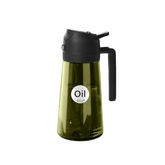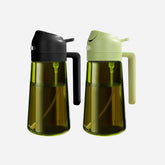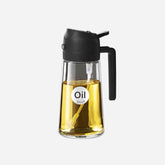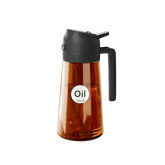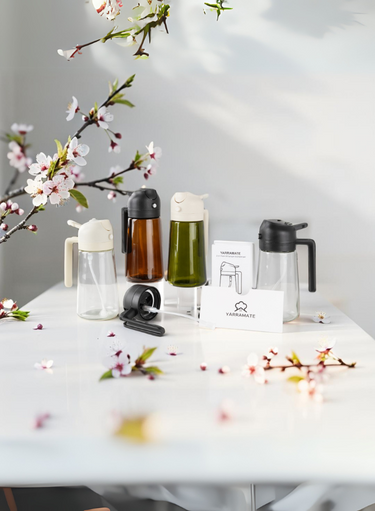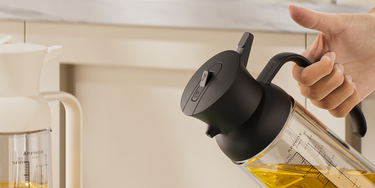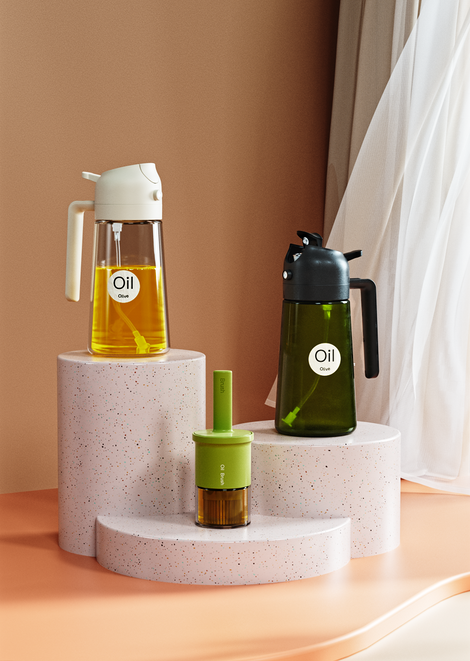When Less Isn’t Always Better: When You Actually Need More Oil in Cooking

"Low-oil" has become the new badge of health — but here's the thing: avoiding oil completely might actually do more harm than good. In some cooking methods, a bit of oil is not just about flavor — it's about proper nutrition, texture, and safety. Let's talk about why sometimes, your olive oil dispenser deserves a little more action.
Why the 'Low-Oil' Myth Needs Rethinking
We've been told to avoid oil at all costs — but that's oversimplifying nutrition. According to the Harvard Health Publishing, healthy fats like olive oil are essential for heart and brain health. Eliminating them can lead to vitamin absorption issues and poor skin health.
In short, using oil wisely — not avoiding it — is what truly defines a balanced diet.
When More Oil Means Better Cooking
Stir-Frying: The Art of Quick Heat
Ever noticed that restaurant stir-fries have a glossy finish and even browning? That's not magic — it's enough oil coating every ingredient evenly. Using too little oil makes food burn fast and stick to the pan.
Sautéing Aromatics: Why a Dry Pan Ruins Flavor
Garlic, onions, and herbs need oil to release their aroma compounds. When cooked in a dry pan, they scorch before the flavor fully blooms.
Oil acts as a conductor that helps dissolve fat-soluble flavors — it's what turns "good" into "mouthwatering."
Deep-Frying Isn't Evil — If Done Right
When oil is at the correct temperature (around 350°F/175°C), food absorbs less oil than you think. According to a study published by National Library of Medicine, proper frying seals food faster and locks out excess grease.
So, a well-fried piece of chicken can be less oily than a poorly pan-fried one.
The Nutrition Behind Proper Oil Use
Fats play an essential role in nutrient absorption, especially vitamins A, D, E, and K. Without some oil, even your colorful veggie salad won't give your body what it needs.
Want to learn more about cooking balance? Check out our post on 5 Cooking Mistakes That Make Food Less Healthy.
Practical Tips for Balanced Cooking
- Use a glass olive oil dispenser for better portion control — it lets you see exactly how much you're adding.
- Opt for cold-pressed oils and avoid overheating to retain nutrients.
- Pair oil with fiber-rich foods to slow digestion and maintain satiety.
For more mindful ways to manage oil use, visit 6 Smart Ways to Control Oil in Cooking.
FAQ
Is using more oil always bad for health?
Not necessarily. It depends on the type and amount. Extra virgin olive oil, used moderately, is one of the healthiest fats available.
Can olive oil be reused after frying?
Yes — but only once or twice. Strain it and store it in a cool place. Discard when it smells rancid or darkens significantly.
What's the best way to measure oil precisely?
Use an olive oil dispenser with a controlled spout or sprayer — it gives better precision and helps reduce waste.
Summary: Cooking Smart, Not Fearful
Oil isn't the enemy — ignorance is. Understanding when and how to use oil makes your cooking healthier, tastier, and more satisfying. The key is mindfulness: enough to enhance flavor, not drown it.
So, next time you reach for your olive oil dispenser, do it with confidence — a little oil used right can go a long way toward better meals and better health.


